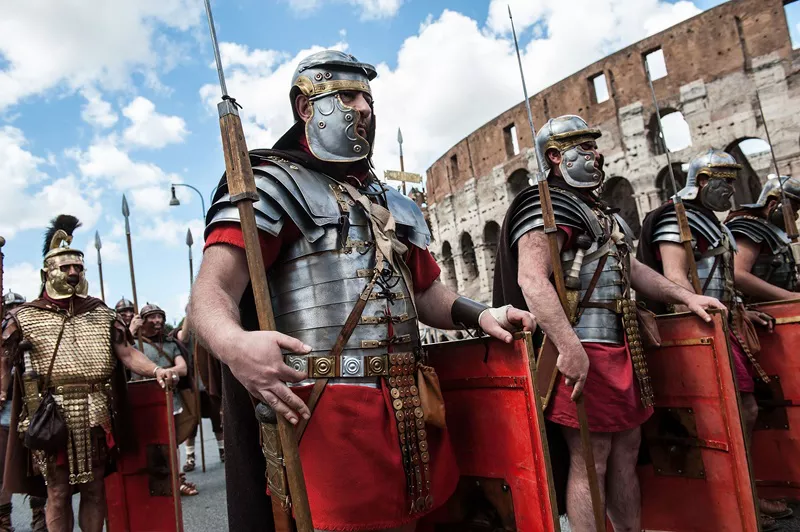The events surrounding the resurrection of Jesus Christ are central to Christian faith. Among the key figures in this historical account are the Roman soldiers who were tasked with guarding the tomb of Jesus. This article explores what happened to these soldiers after the resurrection, based on biblical accounts and historical context.
The Context of the Tomb Guarding
After Jesus was crucified, Joseph of Arimathea requested His body and placed it in a tomb, sealing it with a large stone. To ensure that Jesus’ disciples would not steal the body and claim that He had risen, the chief priests and Pharisees approached Pilate, the Roman governor, seeking a guard for the tomb.
Matthew 27:62-66
“The next day, the one after Preparation Day, the chief priests and the Pharisees went to Pilate. ‘Sir,’ they said, ‘we remember that while he was still alive that deceiver said, “After three days I will rise again.” So give the order for the tomb to be made secure until the third day. Otherwise, his disciples may come and steal the body and tell the people that he has been raised from the dead. This last deception will be worse than the first.’ ‘Take a guard,’ Pilate answered. ‘Go, make the tomb as secure as you know how.’ So they went and made the tomb secure by putting a seal on the stone and posting the guard.”
This passage highlights the concern of the religious leaders about the possibility of the resurrection and their desire to prevent any deception concerning Jesus.
The Event of the Resurrection
On the third day after Jesus’ crucifixion, the resurrection occurred. The Bible describes how an angel of the Lord came down from heaven, rolled back the stone from the tomb, and sat upon it. The soldiers who were guarding the tomb witnessed this miraculous event.
Matthew 28:2-4
“There was a violent earthquake, for an angel of the Lord came down from heaven and, going to the tomb, rolled back the stone and sat on it. His appearance was like lightning, and his clothes were white as snow. The guards were so afraid of him that they shook and became like dead men.”
The sight of the angel and the earthquake caused great fear among the soldiers. The text indicates that they were paralyzed with terror, unable to react.
The Aftermath for the Soldiers
Following the resurrection, the guards reported the events to the chief priests. This indicates that they did not simply flee or remain silent but felt compelled to disclose what they had witnessed. Their experience placed them in a precarious position, especially given the political and religious implications of the resurrection.
Matthew 28:11-15
“While the women were on their way, some of the guards went into the city and reported to the chief priests everything that had happened. When the chief priests had met with the elders and devised a plan, they gave the soldiers a large sum of money, telling them, ‘You are to say, “His disciples came during the night and stole him away while we were asleep.” If this report gets to the governor, we will satisfy him and keep you out of trouble.” So the soldiers took the money and did as they were instructed. And this story has been widely circulated among the Jews to this very day.”
This passage reveals the response of the religious leaders to the soldiers’ report. They concocted a plan to spread a false narrative that Jesus’ body had been stolen, effectively attempting to cover up the resurrection.
See Also: When Did Taxes Start in the Bible?
Consequences for the Soldiers
While the Bible does not provide specific details about the ultimate fate of the Roman soldiers, several important implications can be drawn from their actions:
1. Fear of Retribution
The soldiers were likely concerned about the consequences of their failure to fulfill their duty. Allowing a body to be stolen would have been seen as a serious breach of their responsibilities, potentially leading to severe punishment, including death.
2. Acceptance of Bribery
The fact that the soldiers accepted money to spread a false report suggests a level of complicity in the deception. This act could indicate a willingness to sacrifice their integrity to protect themselves from potential repercussions.
3. Impact on Faith and Conviction
Some scholars and theologians suggest that the experience of witnessing the resurrection and the subsequent bribery may have led to inner conflict for the soldiers. Although they chose to align with the religious authorities, the profound nature of what they witnessed could have affected their beliefs.
4. Historical Context
In Roman military culture, the consequences for failing in duty were severe. However, the actions of the soldiers after the resurrection—reporting to the chief priests and accepting a bribe—indicate a desire to preserve their lives and positions rather than adhere to the truth they encountered.
Conclusion
The Roman soldiers guarding the tomb of Jesus were pivotal witnesses to the resurrection event. Their encounter with the angel and the empty tomb placed them in a unique and challenging situation. Ultimately, their decision to accept a bribe and propagate a false narrative raises questions about integrity, fear, and the nature of belief in the face of undeniable truth. While the Bible does not specify their ultimate fate, the historical and spiritual implications of their actions continue to resonate within the Christian faith, serving as a reminder of the power of truth and the potential consequences of denying it.
Related topics:


